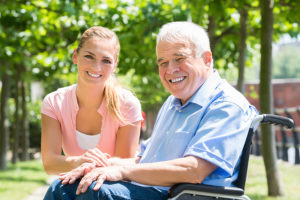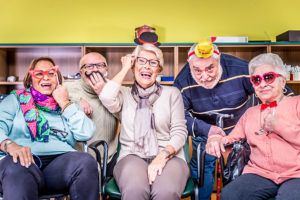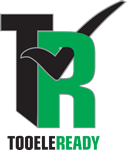Ready Seniors
 People with disabilities or special needs should take extra precautions when preparing for a disaster. One of the most important things you can do is have a buddy, someone who can help you evacuate and take care of you. During an emergency, your usual care giver may not be able to help you. Make sure your buddy knows how to operate any medical equipment you use and knows what medication you may need.
People with disabilities or special needs should take extra precautions when preparing for a disaster. One of the most important things you can do is have a buddy, someone who can help you evacuate and take care of you. During an emergency, your usual care giver may not be able to help you. Make sure your buddy knows how to operate any medical equipment you use and knows what medication you may need.
When planning for the care of the elderly and those with special needs, please consider the following recommendations:
• Establish a close network of relatives and friends who can assist your family in an emergency.
• Make sure helpers know where to find the emergency supply kit which includes emergency supplies, medications, important documents, and other essential equipment.
• Remind family members to always wear a medical alert tag or bracelet if they have threatening
health conditions.
• Sign up on the Utah Special Needs Registry by calling 211 or online at www.specialneedsutah.org.
• Compose a list of special items, equipment and supplies family members will need during a disaster.
 Extra supplies for people with disabilities and special needs may include:
Extra supplies for people with disabilities and special needs may include:
1. Prescription medications with a record of when and how much of the medication they should receive
2. Prosthetic devices
3. List of style and serial numbers of medical devices
4. Extra eye glasses and a record of the prescription
5. Emergency medical certification
6. Extra oxygen
7. Extra pillow, bedding
8. Medical insurance and Medicare cards and information
9. Back-up power supplies or generators for heat, air-conditioning, and oxygen generators
10. Extra wheelchair batteries and tools
11. Hearing aids, and extra batteries
12. Other needs that are used daily, keep an extra supply available
Be aware of fraud and scams:
- Don’t pay cash to a contractor for home repairs and never give your credit card number unless you are paying the bill with it.
- Be sure you have a signed contract detailing the work you want to have done and don’t make a final payment until the work has been done to your satisfaction.
- Make sure that any contractors, plumbers, electricians or roofers are bonded licensed or registered in your state. You can check their license status with your state or Better Business Bureau.
- Try to get several bids before agreeing to any work; a one-third down payment is considered appropriate.
- Beware of home repair loan brokers who guarantee you a loan if you first pay a fee.
- If you suspect you have been taken advantage of, call your state attorney general’s office.
Additional Links
Senior preparedness information from Red Cross
Disaster Preparedness Guide for Seniors written by seniors for seniors
Ready.gov information for seniors
Senior Emergency Kit Worksheets and Checklists from caregiverstress.com
Caregivers Organizer from careforagingparens.com
Resources available for older Americans about disaster assistance from the Federal Government

